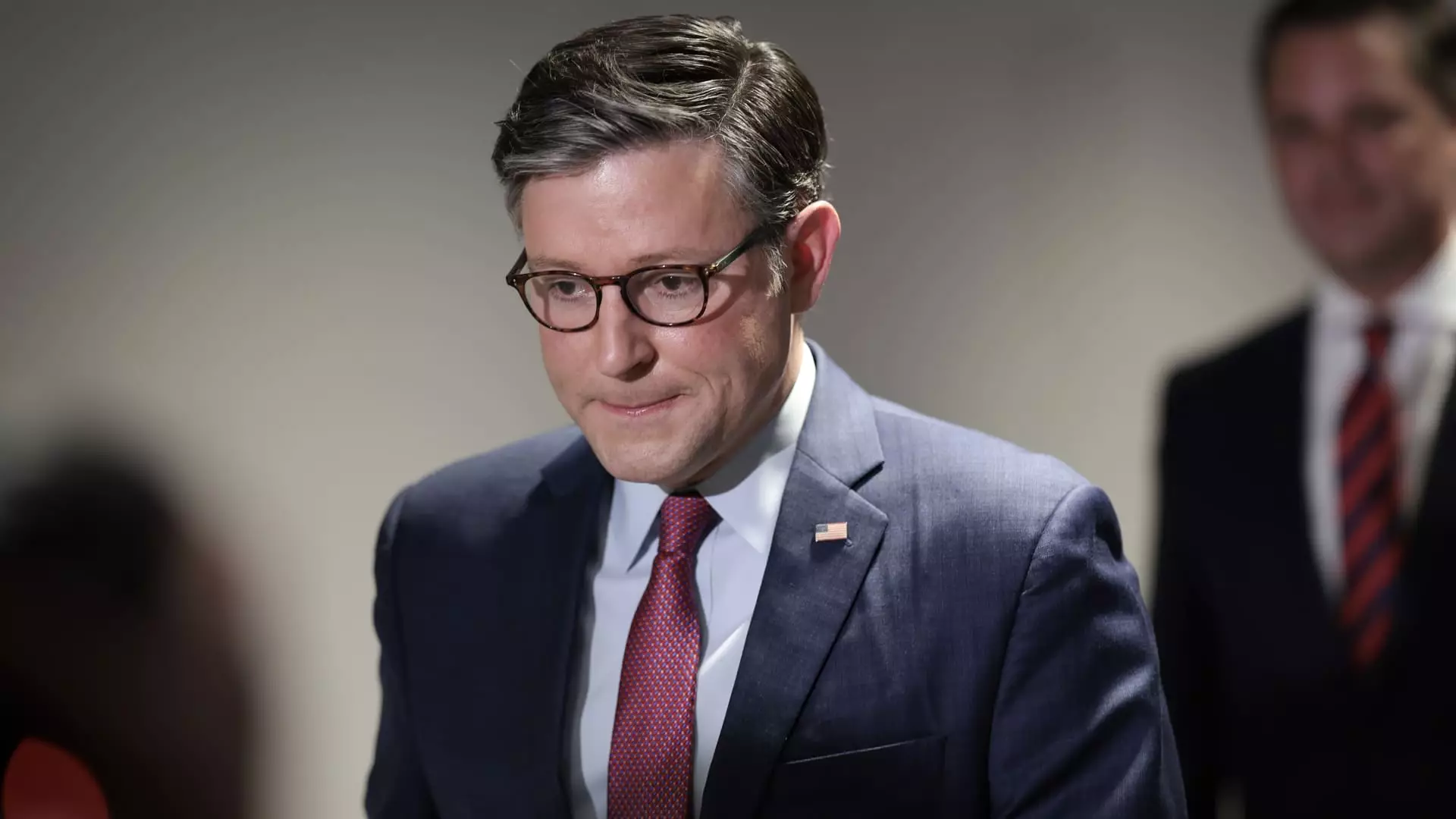In a political landscape fraught with division and urgency, House Speaker Mike Johnson’s announcement of a new government funding proposal signifies a strategic pivot in the Republican approach towards a looming crisis. With a partial government shutdown on the horizon, expected as soon as October 1, Johnson’s plan illustrates a delicate balancing act, where he must navigate the interests of his party while also accommodating the demands of Democrats.
The impending government shutdown underscores not only the partisan strife within Congress, but also the high stakes of the approaching elections. With critical elections rapidly approaching in November, the idea of a government shutdown presents immense risks for both parties. Shutdowns have historically led to public discontent, and with control of the White House and Congress hanging in the balance, both sides seem keen to avoid that kind of political fallout.
Johnson’s earlier proposal aimed for a March 2025 funding resolution but met with significant pushback from within the Republican ranks. The inclusion of the SAVE Act, which emphasizes stringent voter registration requirements, aligned closely with Trump’s agenda but alienated moderate members of the GOP and drew steadfast opposition from Democrats. By reorienting the funding proposal to focus on a more immediate solution, Johnson appears to be taking a pragmatic stance—an unusual but necessary approach in the face of strong partisan resistance.
The newly proposed temporary funding bill extends government funding only until December 20 and eschews inclusion of the controversial SAVE Act, demonstrating Johnson’s willingness to negotiate and find common ground. His comments reflect an understanding of the precarious nature of the political situation. In a letter to his colleagues, he emphasized the necessity of a “very narrow, bare-bones” approach, prioritizing only essential extensions to prevent a shutdown.
This shift reveals a significant concession that could have long-term implications for Johnson’s leadership. While the prioritization of essential funding is prudent from a governance perspective, it also opens up Johnson to the risk of criticism from more hardline factions within the Republican party, who may view his actions as capitulation. Johnson seems acutely aware of the delicate landscape, having expressed that a government shutdown so close to elections would be political malpractice—a sentiment that likely resonates with many within both parties.
Johnson’s adjustments to the funding proposal have not gone unnoticed by Democratic leaders. Senate Majority Leader Chuck Schumer welcomed the news during a press conference, highlighting the potential for bipartisan collaboration to keep the government functional. Schumer’s comments reflect not merely a relief from impending chaos but also a strategic maneuver to shift the narrative from one of impending crisis to potential collaboration—a savvy political tactic ahead of an election cycle.
The reaction from Democrats further indicates a larger desire for stability and mutual concessions to foster governability. The absence of the SAVE Act in the funding proposal diminishes a significant point of contention, potentially paving the way for smoother negotiations and a path forward that could appease moderate voters from both parties.
As the clock ticks down, the urgency of reaching a consensus is palpable. Johnson’s new proposal, now expected to reach the House floor shortly, needs to navigate a narrow pathway through a fractured party landscape. With only a slim majority, the need for bipartisan support is essential not only for passing the bill, but also to prevent political self-sabotage just weeks ahead of an election. The introduction of such a short-term spending plan can facilitate a clean slate for the newly elected Congress to tackle broader budgetary and legislative agendas.
Yet, this tactical retreat risks alienating some factions within the Republican party who favor a more aggressive stance on funding and budgetary matters. Johnson’s challenge lies in re-establishing credibility among dissident Republicans while securing the necessary bi-partisan support.
Ultimately, the decisions made in these tumultuous weeks will be defining for Mike Johnson’s speakership. Like his predecessor, former Speaker Kevin McCarthy, the tightrope walk between bipartisan cooperation and party loyalty may ultimately shape his lasting impact on the role. As Johnson maneuvers through these turbulent waters, the ability to forge consensus while maintaining party integrity will determine not only the fate of governmental functions in the short term but also the long-term political landscape as the upcoming elections approach. Balancing these demands will require deft leadership and a willingness to adapt in the ever-evolving political arena.



Leave a Reply